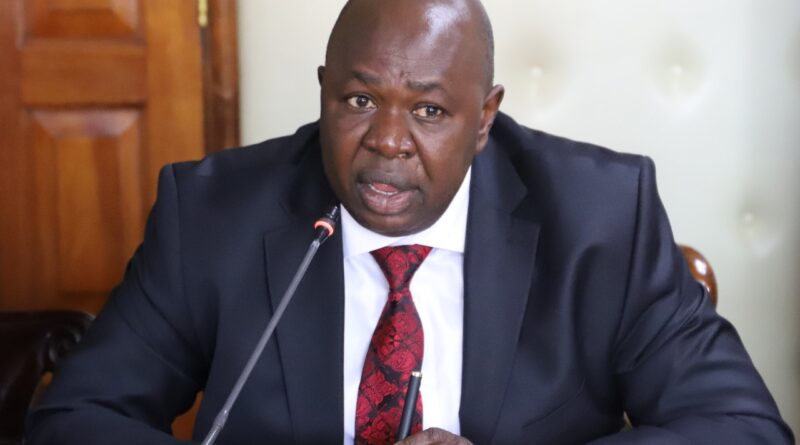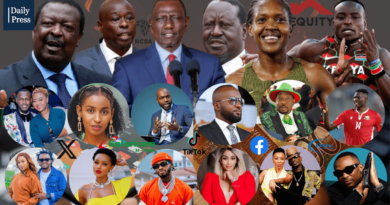Former Police Spokesperson Charles Owino Defends Shooting of Hawker Boniface Kariuki
A wave of public anger has erupted following comments made by former police spokesperson Charles Owino, who appeared to justify the shooting of 29-year-old hawker Boniface Mwangi Kariuki during the recent anti-government protests in Nairobi.
Speaking during a live interview on JKLive on Citizen TV, Owino claimed that Kariuki, who is now brain dead after being shot in the head, may have provoked the police officer by hurling verbal abuse moments before the shooting.
According to Owino, the officer who pulled the trigger was young and inexperienced, with less than two years on the force. He suggested that the officer’s emotional state and lack of maturity may have led him to use a live bullet instead of a rubber one.
While Owino acknowledged that law enforcement officers are expected to exercise restraint, his remarks sparked immediate backlash for seemingly downplaying the severity of the incident.
Kariuki was shot on June 25, 2025, during the Gen Z-led nationwide protests that rocked Nairobi and several other towns. Witnesses say he was unarmed and walking away when police opened fire.
The incident, which occurred in the heart of the Central Business District, left Kariuki critically injured. He was rushed to Kenyatta National Hospital, where doctors later declared him brain dead. Bullet fragments are still lodged in his skull, and the family is now awaiting official confirmation of death.
The police shooting of Kariuki has become a symbol of the excessive force used during the protests, which were intended to mark the anniversary of the 2024 anti-Finance Bill demonstrations.
The protests quickly escalated into a national outcry against police brutality and poor governance. Reports from rights organizations and media outlets suggest at least 16 people were killed and hundreds injured during the June 25 unrest.
The Independent Policing Oversight Authority (IPOA) has since opened an investigation into the shooting, and two police officers—identified as Klinzy Barasa Masinde and Duncan Kiprono—have been interdicted pending further inquiry.
Interior Cabinet Secretary Kithure Kindiki and other government officials have promised accountability, but public trust remains deeply shaken.
Owino’s remarks have added fuel to the fire. Critics took to social media to condemn his statements, with many accusing him of victim-blaming. Human rights defenders and political commentators pointed out that insulting an officer does not justify the use of lethal force, especially when the person poses no physical threat. “You don’t shoot someone in the back of the head for words,” wrote one commenter on X. Another noted, “Even if there was verbal abuse, the officer’s duty is to de-escalate—not execute.”
“When did an insult warrant the use of a firearm? Police must learn to exercise restraint unless their life is threatened… Stop sugarcoating such acts” another commend read.
Civil society organizations have called for an overhaul of police training programs and stronger enforcement of the use-of-force policy. The Kenya National Commission on Human Rights (KNCHR) and Amnesty International have demanded swift justice for Kariuki’s family and all other victims of police violence during the protests.


